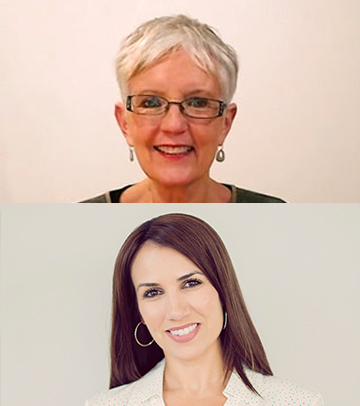How to Transform Shame with Self-Compassion
 |
with Deborah Lee, DClinPsy;
|
 |
with Deborah Lee, DClinPsy; Christopher Germer, PhD; Kristin Neff, PhD; Paul Gilbert, PhD; Jack Kornfield, PhD; Dennis Tirch, PhD; Susan Pollak, MTS, EdD; Laura Silberstein-Tirch, PsyD; Christopher Willard, PsyD; Ruth Buczynski, PhD and Ashley Vigil-Otero, PsyD
Sign up for a Gold Membership

Very much enjoyed Deborah Lee’s contribution in this module. The person who has profound feelings of shame ‘walks around with an internal dialogue which is highly toxic and self-critical.’ But she states that nothing is beyond the reach of our self-compassion. I liked Tirch’s idea that we were stabilised by compassion. I found Deborah Lee’s suggestion that we need to educate people about the human condition useful and that we need to get the tempo right with client’s presenting with shame, how to notice it, what to do and how to recover. I liked the idea of ‘retiring off the old critic’.
All very helpful. Thank you.
I am so impressed with the quality of this program. The material and speakers are excellent. To start, I will be recommitting to Loving-Kindness meditation, and introducing it to several clients. Thank you so much for such an excellent program.
I am a Spiritual Director and met with a Directee just a few hours after this session. I was able to use the Compassionate Imagery exercise immediately in this session as childhood shame came to the surface. It was helpful for me to have the tools and healing for my Directee.
Thank you so much!
I was looking forward to watching the rebroadcast at 11PM Eastern/ 8PM Pacific…but it’s not available. Will it be shown again?
Extremely helpful for myself who never experienced more than a short term, occasional person who cared for how I was doing.
These techniques, even just hearing about them, bring a significant sense of relief.!
I especially love the idea of sending that self critic to a place of abandoned isolation!
Your techniques hold immense healing value. A review of this session would be helpful but my budget does not allow investing in the gold membership. I did manage to take some good notes to help along with my regular therapy.
Use of metaphors good, e.g.’not letting self off the hook’ and imagining a compassionate other to assist with this. Reminder from Kornfield that what we do is all about love.
I would like to be a client of this therapy. I would love to be free of shame and the inner critic. How do I go about this?
I thought the presentation was great.
I felt someone really understands
Thank you
Some of the speakers were clear & easy to understand (Chris Germer, Deborah Lee, Kristin Neff, Paul Gilbert, Dennis Tirch, Jack Kornfield) & they should have had more time to speak than others. Otherwise, I found this session to be confusing & bewildering, with too much info, rolled out too fast, that it was hard to grasp the key techniques, even though I have a clinical background. It seemed like a tsunami of words describing a number of techniques, which were fragmented & would be challenging to use on oneself, let alone on clients with trauma & shame. My notes reflected the same level of fragmentation! Also, if a therapist is not grounded & not working on his\her unresolved emotional baggage & it spills into the therapy session, this spells disaster for the severely traumatized client. Finally, these techniques sound great on paper & in the webinar, but would likely take a very long time to move clients towards self-compassion, esp. if they have deeply rooted shame from childhood onwards into adulthood, that is repeatedly complicated by new traumas, which raise previous trauma triggers (cumulative traumas Big T & little t traumas all merge into one), to the point of emotional paralysis & isolation for sheer need for safety!!
I agree with all your points here. I was lucky to have the time to listen to the webinar twice without charge (last week’s too), to try to absorb it all better, and take notes twice. I applaud the producers’ goals and intentions and their generosity in providing free broadcasts. But in the end, I agree that even these “techniques” will take too long to teach in most cases. And the reason is that, after the one hour session, the client steps back into “real life” where they get hammered 24/7 with societ’sy messages that they are, after all, unworthy, ugly, the wrong shape, the wrong color, the wrong IQ, the wrong pedigree, etc. (Even Tirsch gives a “technique” called Two Schools that can only apply to high-achieving parents and kids who can afford private schools.) So I think your question is not so much a critique of these techniques, but more deeply, a critique of what therapy can accomplish when the culture at large is determined to undermine everybody’s self-esteem, even the self-esteem of people “at the top” (as the Two Schools “technique” so aptly pantomimes.) I look forward to the day when the field of Psychology goes back to its roots in Philosophy, and takes on the task of discovering why our culture and/or the human brain are hellbent on making life miserable in so many unnecessary ways. Instead, the study and the profession of Pyschology (with the possible exception of Social Work) are pretty much set up to handle the victims, to receive the collateral damage of our culture’s morés, and, sadly, to profit from their continued pipeline. But instead of criticizing anyone for this, let’s name it and try to move forward.
I valued the acknowledgment of the need to pace and be more matter of fact when people have ingrained traumas or shame. That was an important reminder. Loved the concept of a constructed compassionate “other.”
I continue to enjoy hearing from the presenters. Today’s session was a surprisingly good and helpful one. However, Dr. Ruth Buczynski tends to come off to me as a little overbearing, as if she’s talking down to her audience. Also, she and Dr. Ashley Vigil-Otero could wait until the end of the sessions to repeatedly promote the ‘gold package’.
Thank you for providing these interesting learning events.
Bart, I agree with you totally that Ruth Buczynski & Ashley Vigil-Otero have annoying grating voices for my ears (speaking of Tone training) that constantly remind us in a condescending way, that we are “not good enough” if we cannot afford to buy the gold package, which may apply to a number of us on the free calls. That already exacerbates the shame in us, as we can only do our best to manage our life circumstances, esp. when living within dire financial constraints. It does not show ANY compassion for a variety of challenging life circumstances that may be experienced by the audience. So in effect, they are undermining the very essence of this series on Self-Compassion & this leaves us having to ring off and nurse our emotional wounds after the webinar!!!!
I appreciated the addition of the word Appease to the Fight Flight Freeze paradigm of Trauma. I also got, in a very big way, that to shift a client from Shame to Self Compassion is a bottom up approach, a leaning into emotion rather than cognition. Some good learning here. thank you!!
I plan to incorporate the tools and procedures talked about today in my work with a parent is grieving her part in the loss of a child 3 years ago.
I especially love the concept of inner tone training—critical in all relationships!
Thanks! I am thinking about how I can use that on myself.
Fight, Flight, Freeze, Appease! Yes. I attended a training recently where they had the word fawn where you have appease. I didn’t connect well with fawn so I changed it in my brain to Feign but I like Appease even better, much more clear and simple to understand. This has been an a ha for me around just going along and playing small being a response in a similar brain state as freeze. Yes!! So important to give people with trauma this information and then really and truly allow them to make their own choices (not pressured choices, not going along because it is easier or avoids confrontation)!
What I really liked about the session today is the idea that shame (and other negative emotions) are trying to protect us somehow. By understanding this we can turn our shame/depression/anger around, as first we stop fighting against them (that resistance causes much more pain than the core of our self rejection) and with a more self compassionate attitude we start working on them either by changing behaviour or accepting our humanity. (I’m not a therapist but I’m interested in Mindfulness). Pity the audio keeps on falling, and lose track of what’s being explained.
Some men I work with are very tuned into sports, and there are great examples of good coaches, who are calm when the team is not performing, and not so good examples…this creates a metaphor to link up with developing a compassionate coach for oneself. Prognosis is tricky for this problem…some patients need quite a bit of help to let go of shame. Interesting program; Dr. Ruth B. has excellent platform skills.
Thank you to the team. I loved the image of the fight, flight, freeze, appease response to a shame memory / thought / feeling. Such a succinct way to describe what is going on in a non-blaming way for clients. I also really liked the approach of creating invivo experience of the self-compassionate voice (tone, embodiment). I am linking this in my mind with both DBT work (wise mind) and also somatic psychotherapy (Hakomi) and some of Rick Hanson’s work on positive neuroplasiticity. Thank you for making these resources available.
Importance of subconscious reactivity to voice tone- self and others. Practising self compassion and kindness- heart connection
I am a psychology student who is a survivor of incest, physical abuse and suffers from dissociative identity disorder. I loved the concept of the caring other imagining how I could employ it to replace my harsh critic and help myself. I am blessed with a wonderful, loving therapist. Thank you so much for the free webinar.
I find that my clients seem to be in need of such work and they might definitely benefit from them. I will listen better when coaching and find the right time to propose the exercises that Dennis Tirch suggested or I will find similar ones that might be more adapted. Also there is a lot of room to work more with the head-body connection and help clients see that as an resonance rooms, when something happens in the head, something changes in the body, and when something happens in the body, there is a reaction in the head. I have also written down all the names of the intervenients and some book titles from Laura’s bookshelf ! Thank you!
Thank you for this informative session. Love the use of tone, its an important tool to cultivate and use. Congratulations this session was so useful and packed with very useful info.
Thank you again for this informative, compassionate presentation! I work with some clients who have a terrible inner critic with deep trauma issues from childhood. I really like the idea about the compassionate other, because it would be a place to start for them in terms of acceptance of the need to sooth themselves and actually using the other to sooth themselves. It would open the door for them to be able to tolerate being compassionate to themselves.
I value the idea that addressing cognition alone is not enough. We must engage the body and emotion in order to be effective. I look forward to learning other ways of doing this.
Internal Family Systems methodology and techniques were so prominent in the webinar today. Why didn’t you have an IFS practioner included? Martha Sweezy, PhD specializes in using IFS to heal shame -based systems. Also, whole communities are effected by collective shame of racism, sexism, LGBTQ2S bigotry, and xenophobia.
Yes I really agree that it would be good to look at how shame for certain groups/identities can be addressed at a society/community level. Findings ways to help those groups retell their stories in compassionate ways for themselves and in the same process, to raise understanding and compassion in others. A really interesting example of this that I read recently is the following thesis on using art with women who have experienced vilence in the home – it both develops self compassion for the individual and raises awareness in the wider population: https://mro.massey.ac.nz/bitstream/handle/10179/14109/02_whole.pdf?sequence=2&isAllowed=y
The idea of tone training sounds like something I could use with a couple of people.
I appreciated the hope throughout the session, that shame can be transformed
I’m an ordinary person struggling with the issues discussed. I’m not a therapist. But I found the whole session so thoroughly insightful ,thought-provoking and forwardthinking. I wish I could find a CFT therapist in the UK. A lot say they do, but so far none have exhibited the insight illustrated by your contributors. As others have commented, I really liked the idea of the inner critic getting the wrong end of the stick, thanking it, and replacing that harsh voice with a soft and kind one sounds a brilliant idea . It ties in with the work of Jack Kornfield and Tara Brach, which I do value so much.
Thank you for this feee webinar.
I help moms who lose their temper. One of the challenges I see is that parents and educators of children are learning about emotional intelligence, but they are still blind to the fact that when they yell at or spank a child (or give or take away “points” in the classroom), they are not being emotionally intelligent. They are still in the discipline paradigm of reward/consequences/threats/punishments (and blaming the child for the adult’s anger). Another good example is non-emotionally intelligent fundraisers in the schools. There is so much emotional pressure and bullying of children. We are teaching our kids not to bully each other, and yet we are still unconsciously bullying them with our outdated non-emotionally intelligent methods. We need to remember to continue to cover the full spectrum addressing the bad stuff (extrinsic rewards/punishments) in addition to teaching the good stuff. We’re moving towards value-based emotionally intelligent discipline that is strictly compassionate and helpful when it comes to hurtful behaviors. For behaviors viewed as “bad,” we review procedures that need to be taught, including procedures for handling tough emotions in healthy ways. I’m so happy for this series, because it’s naming the solutions and giving us a vision. Solutions-oriented therapy is the way to go move out of the old, unhelpful ways.
Jack Kornfield’s conclusion was so appropriate and reinforcing to the message of today’s module which was excellent – so full of conviction and authenticity – relaying connection and interbeing to all of us. This was a wonderful presentation and I am grateful. I especially loved to importance of tone and the connection with the inner child – that worthy and lovable child that lingers within all of us. I also appreciated the continued reinforcement that we share a common humanity – we are not alone- we are not alone.
So many helpful things from this webinar, it is hard to say just one! But just starting with shame as a protective feeling and moving from there that it is a safety warning is a major shift in understanding for me. Such a helpful reframe and jumping off point
It was really useful to get a handle on how to work with clients using compassion to deal with their shame, guilt, inner critic. I love the analogy of sending the jobworthy iner critic to the retirement home and replacing this with a compassionate self/other